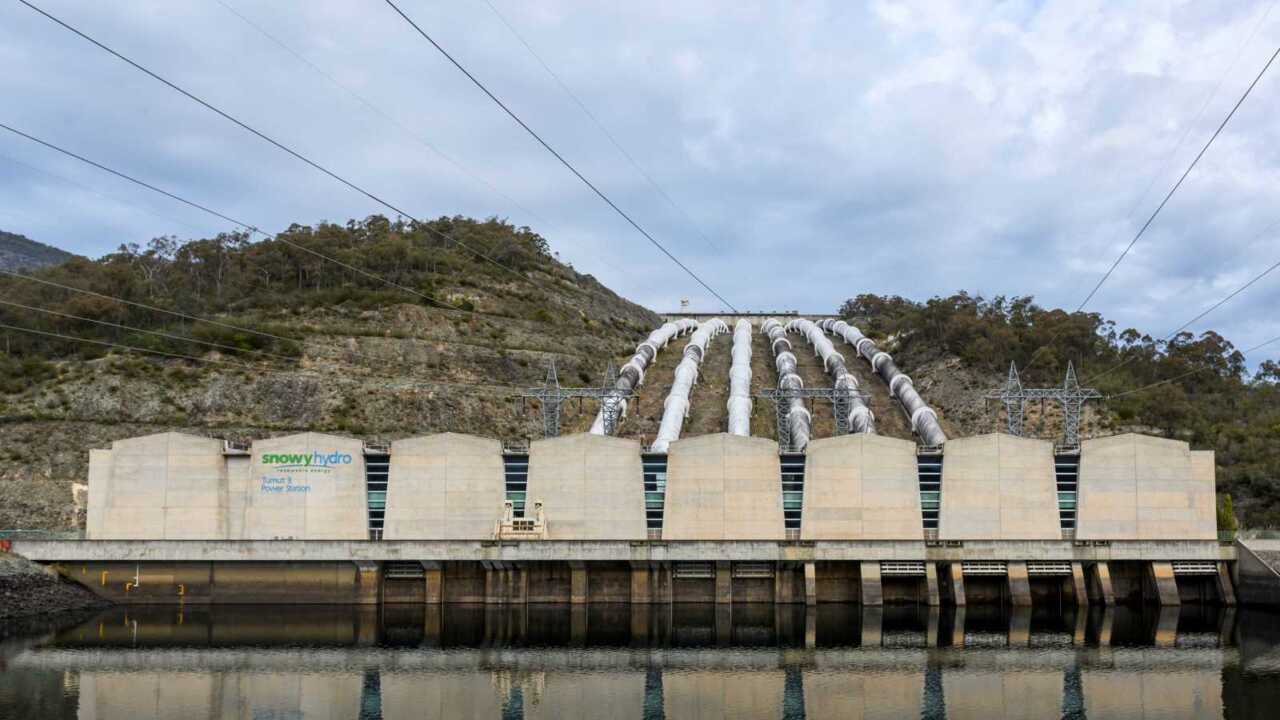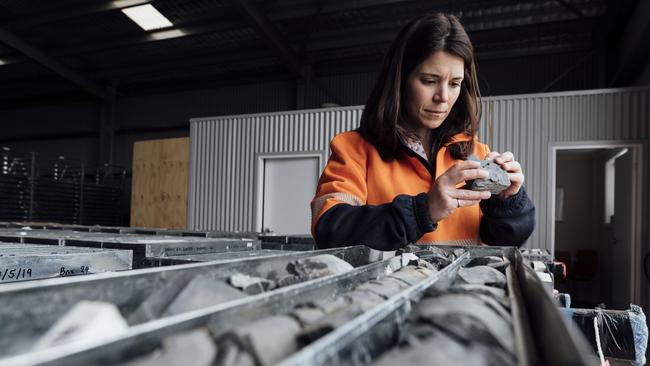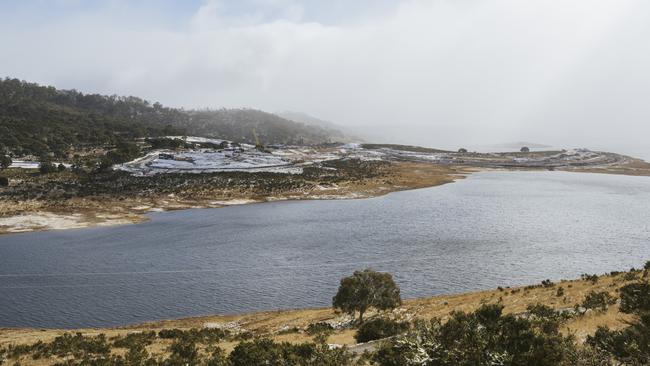Clough is close to being saved thanks to a deal with its Snowy 2.0 partner, Webuild
Clough may be able to dodge its financial pressures if a deal with Italy’s Webuild to buy the embattled contractor succeeds.

Business
Don't miss out on the headlines from Business. Followed categories will be added to My News.
The nation’s oldest engineering firm, Western Australia’s Clough, is close to being saved by Italy’s Webuild, which is poised to buy the troubled contractor from its South African owners.
Webuild – Clough’s partner in the federal government’s giant Snowy 2.0 hydro expansion project – is in talks to finalise an agreement to buy the company, in a deal that would stave off a snowballing financial crisis.
Sources have told The Australian that the two companies could announce a deal within days as Clough’s parent, Murray & Roberts, prepares for its annual meeting in South Africa on Thursday.
There has been market speculation Clough is in the process of redrafting its 2022 financial accounts to reflect a hit from several major resources projects. Several top executives in North America have also stepped down from Clough recently.
A deal would hand Webuild a multibillion-dollar order book in addition to high-profile projects such as Melbourne’s North East Link scheme, the Perth rail link and the Inland Rail development.

But it would also significantly raise the stakes for the Italian contractor to deliver on several critical energy projects, including major electricity transmission developments, amid fears delays in executing the Snowy expansion will deepen a volatile energy grid.
Clough regularly files its annual financial reports with the corporate regulator by the end of October, but has yet to lodge its accounts for the year to June 30.
Its parent flagged a major earnings downgrade this month amid an “acute” cash crunch at the embattled contractor.
Murray & Roberts pointed the finger at Clough’s engineering contracts on the $US650m ($1bn) petrochemicals plant under construction in Texas, Project Traveler, in addition to the Mitsui-operated Waitsia gas project.
Clough has endured widespread problems in paying subcontractors and suppliers this year, sparking speculation the company would soon be tipped into voluntary administration unless its parent company was able to inject more funds.
On Tuesday Clough declined to respond to questions about the delay in lodging its accounts.
Depending on the extent of problems at Waitsia and Project Traveler, a restatement could instead plunge the company into a substantial loss and cause a fresh headache for its parent, which has already released its 2022 results.
The company’s 2021 financial accounts, filed with the corporate regulator last year, show the company made a $20.8m net profit and held cash of $246.3m.

Clough chief executive Peter Bennett told staff in July the company remained debt-free and was expected to book earnings of about $35m for the 2022 financial year when its accounts were finalised.
Another key factor in negotiations over any Webuild acquisition of Clough will be the treatment of the debt owed to the WA company by its owner.
Murray & Roberts owed Clough $342m at the end of the 2021 financial year, a legacy of $200m the parent borrowed from Clough in 2013 in order to close out its $446m acquisition of the contractor.
Murray & Roberts trades on the Johannesburg stock exchange with a market capitalisation of about $445m in Australian dollar terms.
Its 2022 annual financial statements show it had outstanding borrowings worth about $298m, according to Bloomberg figures, suggesting the company would struggle to refinance its debt to Clough in the short term unless a deal to forgive or restructure that debt was struck with the Italian contracting major.
Clough and Webuild declined to comment.
Contractors including Clough are facing difficulties executing major projects amid soaring material prices and low-ball bidding, exacerbated through some projects such as Snowy 2.0 striking fixed price deals with contracting firms to limit their cost exposure.

The industry has raised fresh concerns over the “cash negative payment regime” that exists in the sector, calling on government and other clients to stop treating construction contractors and suppliers like financial institutions. “The current construction boom combined with rapidly increasing prices and shortages of materials and labour have negatively impacted business balance sheets and cash reserves resulting in an increase in insolvencies. More businesses fail in construction than any other industry,” the Australian Constructors Association said in an October report.
The federal government-owned Snowy Hydro has confirmed it is in talks over costs claims with Clough and Webuild – the joint venture building its Snowy 2.0 expansion project.
Clough does not have any existing working capital facilities in place and is negotiating with two banks to finalise term sheets given looming cost requirements for several large projects, Murray & Roberts said in September.
“Prompt and fair payment is essential for the health of the industry, starting with advance payments,” the ACA said.
“Advance payment should be provided for site mobilisation costs and long-lead, high-value procurement items to avoid the contractor commencing in a cash negative position and reduce the risk of material price escalation.
“Other policy responses are available to improve liquidity and address security of payment throughout the industry without resorting to the costly, burdensome and ineffective method of project bank accounts.”
Originally published as Clough is close to being saved thanks to a deal with its Snowy 2.0 partner, Webuild


